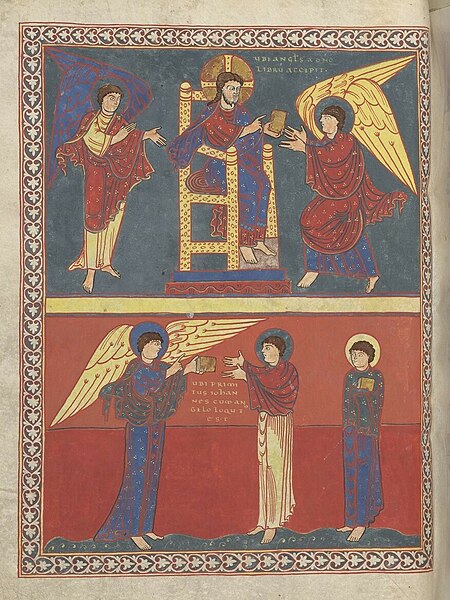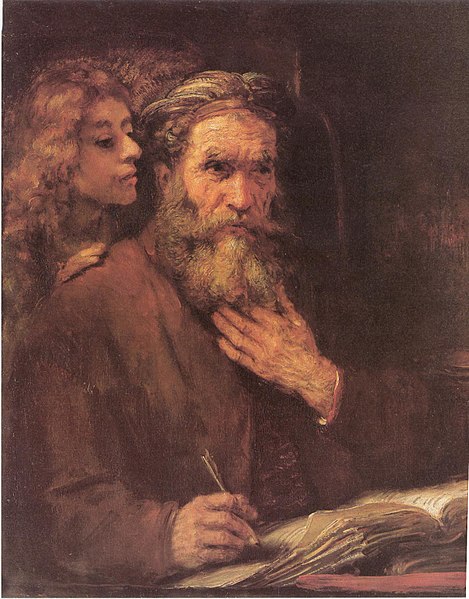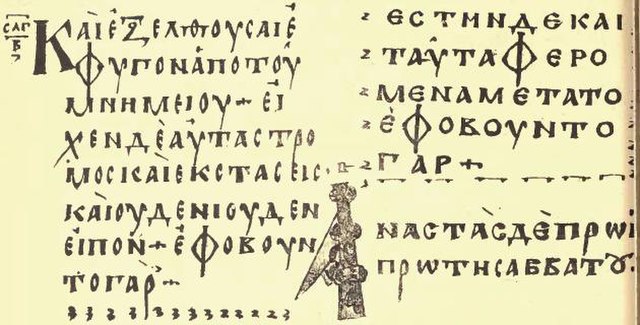The Book of Revelation or Book of the Apocalypse is the final book of the New Testament. Written in Koine Greek, its title is derived from the first word of the text: apokalypsis, meaning 'unveiling' or 'revelation'. The Book of Revelation is the only apocalyptic book in the New Testament canon. It occupies a central place in Christian eschatology.
Frontispiece, Book of Revelation, Bible of San Paolo fuori le Mura, 9th century
Very rare depiction of scenes from Revelation in an altar. Here in Kolby Church, Denmark, 1550.
St. John the Evangelist on Patmos by Hieronymous Bosch, c. 1489
St. John receives his Revelation, Saint-Sever Beatus, 11th century
The New Testament (NT) is the second division of the Christian biblical canon. It discusses the teachings and person of Jesus, as well as events relating to first-century Christianity. The New Testament's background, the first division of the Christian Bible, is called the Old Testament, which is based primarily upon the Hebrew Bible; together they are regarded as Sacred Scripture by Christians.
Evangelist Mathäus und der Engel, by Rembrandt, 1661
Saint Paul Writing His Epistles by Valentin de Boulogne (c. 1618–1620). Most scholars think Paul actually dictated his letters to a secretary.
Papyrus Bodmer VIII, at the Biblioteca Apostolica Vaticana, showing 1 and 2 Peter.
The Codex Regius (L or 019), an 8th-century Greek manuscript of the New Testament with strong affinities to Codex Vaticanus.








